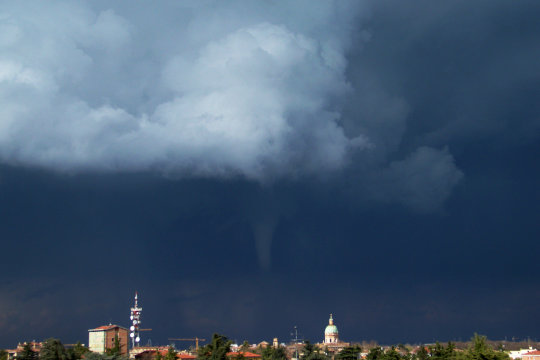| August 20, 2021 | dri.thediplomat.com |
| The Taliban Wins | ||||||||
|
Welcome to the newsletter of Diplomat Risk Intelligence, the research and consulting division of The Diplomat, your go-to outlet for definitive analyses from and about the Asia-Pacific. Each week, DRI Asia Review focuses on a single country, subregion, or theme, based on in-house research, new DRI products, and regional media monitoring. It has four sections. The Big One offers DRI’s assessment of a major security, geopolitical, or economic issue. Babel is analysis based on translations of articles in regional newspapers and media outlets by a DRI team specializing in major Asian languages. In From Our Stable, you will find analysis based on new DRI products, short excerpts from them, or new multimedia features. And finally, each week Digestif will highlight a concept – from science, technology, economics and even philosophy – that will help you up your analytical game, irrespective of your professional interests. This week’s DRI Asia Review unsurprisingly focuses on Afghanistan, as Kabul fell to the Taliban on August 15. We look at the calculations that shaped the Biden administration’s decision to pull out of Afghanistan – and those likely to be made by the Taliban as they assume power in that country. We examine how India is reacting to these monumental developments in its neighborhood and interrogate claims that the U.S. intelligence community failed to anticipate the Afghan military’s abject collapse in face of a Taliban push. And we highlight – again, unsurprisingly – the importance of strategic notice for intelligence analysts. | ||||||||
Kabul Falls Amid American Cut and Run | ||||||||
| Taliban officials arrange a Taliban flag, before a press conference by Taliban spokesman Zabihullah Mujahid, at the Government Media Information Center, in Kabul, Afghanistan, Tuesday, August 17, 2021. | ||||||||
| — AP Photo, Rahmat Gul | ||||||||
The return of the Taliban to Kabul on August 15 will have far-reaching implications for regional and international security and could very well also reshape South Asian geopolitical equations. At the same time, the political impact of the dramatic turn of events in Afghanistan over the past week on U.S. President Joe Biden, and the Democratic Party in general, is likely to be minimal. Meanwhile, China, Iran, and Russia are likely to consolidate their influence in Afghanistan. However, to what extent such influence will modulate the Taliban’s own behavior – inside and outside Afghanistan – remains to be seen. In many ways, there was nothing surprising about the return of the Taliban to Kabul with most regional analysts predicting that outcome once Biden announced the decision to remove all American troops from Afghanistan in April. In fact, on July 16 – eight days after Biden had sanguinely declared that it was “not inevitable” that the Taliban will take over Afghanistan – DRI Asia Review had aggregated some of these apprehensions, writing that Biden’s announcement “reminds many of the U.S. decision to pull out of South Vietnam, leading to the fall of Saigon in 1975.” At the end, Kabul in 2021 came to resemble Saigon in 1975 in ways more than one – the Wall Street Journal even called the ensuing situation in the Afghan capital “Saigon on steroids” – as the United States scrambled to remove its personnel as well as Afghans who had help American and coalition forces over the two-decade long war amid utter chaos. What made all this particularly embarrassing for Biden was that it was the obverse of what he had promised while announcing the decision to withdraw troops from Afghanistan. “There will be no situation where you see people being lifted off the roof in the embassy to the United States from Afghanistan,” Biden had said in the past. Politically of course, there is a broad bipartisan consensus in the United States that the Afghan campaign could no longer be sustained. Recall that Donald Trump too had promised to pull U.S. troops out of Afghanistan. Despite opportunistic statements and political point-scoring by Republicans – and some dissent within the Democratic Party – the Biden administration has shrewdly calculated that the political costs of pulling out of Afghanistan will be minimal, if Afghan soil is not used ever again as a staging ground for attacks in the United States or on American interests globally.
And that’s a big if. On one hand, the Taliban could calculate that overt support for terrorist groups (as was the case in the 1996-2001 period) may stand in the way of the key powers recognizing it. This becomes especially important for the Taliban as it emerged out of the Doha talks with a veneer of political legitimacy. It may indeed be the case that “Taliban 2.0” – while never completely disowning its ties with Islamist extremists – may walk a fine line between limited, covert support for, and active patronage of, old friends. On the other hand, the Taliban’s ties with extremists – especially with Al Qaeda – have a decades-long history which may not be easy to shake off. If the Taliban assesses that the West is unlikely to offer at least token recognition, it simply will not have enough incentives to decisively break ties with its former allies. As events of the past one week unfolded, China’s position has been characteristically and cautiously ambiguous. Its embassy in Kabul – along with those of Iran, Pakistan and Russia – remains open. On August 18, Chinese foreign ministry spokesperson Zhao Lijian noted: “China’s position on the Afghan issue is clear and consistent. We hope that Afghanistan can form an open, inclusive and broadly representative government that echoes the widely shared aspirations of its own people and the international community.” Zhao also indicated that Beijing would recognize the new Afghan regime only after a government in Kabul is formed. At the same time, China has also indicated that it is open to doing business with the Taliban. “The Afghan Taliban said on multiple occasions that it hopes to grow sound relations with China, looks forward to China's participation in Afghanistan's reconstruction and development and will never allow any force to use the Afghan territory to engage in acts detrimental to China. We welcome those statements,” Hua Chunying, another Chinese foreign ministry spokesperson said the day after the Taliban took Kabul. Meanwhile, American strategists – in the throes of a bipartisan consensus to push China back – worry that when it comes to Afghanistan, the United States’ loss translates to China’s gain. As an example, on August 18, Brookings’ Ryan Haas wrote, “The principal means through which China may seek to profit from America’s withdrawal might be its efforts to advance a narrative of American decline.” At the same time, China hawks in the U.S. continue to maintain that by jettisoning Afghanistan, the United States could acquire greater military and political bandwidth to confront China. | ||||||||
Afghanistan: Views From India | ||||||||
| Leaders of the Pakistani religious group Jamiat Ulema-e Islam Nazryate distribute sweets among people to celebrate the Taliban capturing the largest cities of Afghanistan, at a market area in Quetta, Pakistan, Friday, August 13, 2021. | ||||||||
| — AP Photo, Arshad Butt | ||||||||
As the Taliban slowly crept back into Afghanistan’s political scene – in large measures due to U.S.-backed “peace negotiations” between the insurgents and other stakeholders – New Delhi had watched the situation from the sidelines, despite having considerable concrete security stakes in the outcome. While it is not known what precisely the Modi government thought would be the eventual equilibrium in Afghanistan, it is now clear that it too – like most countries – had not assumed that Kabul would fall as quickly as it did. Writing for the Indian Express on August 18, Indian analyst C. Raja Mohan took a long view of the developments, writing: “The restoration of Taliban rule in Afghanistan with Pakistan’s support undoubtedly presents some very serious potential challenges for Indian security. But the gloom and doom that descended upon Delhi since the swift meltdown of the post-2001 political order in Kabul is excessive.” Interestingly enough, opinion pieces in leading Hindi newspapers reflect the “gloom and doom” mood in India right now quite well. Pranav Sirohi, writing in Dainik Jagran on August 16, squarely put the blame for the chaos in Kabul on the United States. “Such a situation could have been avoided, but Biden's carelessness and lack of foresight led to this mess,” Sirohi opined, noting that Pakistan’s proximity to the Taliban as well as China’s interest in Afghan natural resources could very well further complicate India’s security environment. On August 17, Amar Ujala carried an article by K. S. Tomar, a journalist, who reminded readers of India’s considerable financial investment in Afghanistan. He also raised the possibility of a sudden influx of migrants from Afghanistan as well as the shadow the developments in Afghanistan will cast over Kashmir. The Indian Cabinet Committee on Security, chaired by Prime Minister Narendra Modi, met on August 17 to review the developments in Afghanistan. According to Indian Express sources, at that meeting Modi instructed government officials to come to aid of “Afghan brothers and sisters who are looking towards India for assistance” in the coming days. India has introduced a special emergency visa category for Afghans fleeing the Taliban. | ||||||||
Report: Afghanistan and the Taliban’s Return In an upcoming report based on exhaustive in-house research and multiple expert consultations, DRI examines the international security, political, economic, and social equity implications of the Taliban’s return to power. The report also presents a pre-August baseline assessment of these issues for the 2001-2021 period, and possible differences in the Taliban’s current positions on these issues from the past. | ||||||||
An Intelligence Failure? | ||||||||
| U.S. Joint Chiefs Chairman General Mark Milley listens to a question during a media briefing at the Pentagon, Wednesday, August 18, 2021. | ||||||||
| — Flickr, Jason Howie | ||||||||
As a saying attributed to President John F. Kennedy goes, “victory has 100 fathers and defeat is an orphan.” (Kennedy apparently made that remark responding to the 1961 Bay of Pigs fiasco.) As the full scale of the disaster unfolding in Afghanistan begins to come into sharp relief, a blame game within the U.S. establishment is also playing out in public view. The Pentagon has squarely described the Taliban’s victory as an intelligence failure. “There are not reports that I am aware of that predicted a security force of 300,000 would evaporate in 11 days,” Chairman of the U.S. Joint Chiefs of Staff General Mark Milley said on August 18. The New York Times the day before had reported that the U.S. intelligence community had – through the summer – flagged the possibility of the Afghan forces crumbling in face of a Taliban onslaught. The Times had also reported apparent “sharp” disagreements within the U.S. intelligence community about the wherewithal of the Afghan military. “The C.I.A. for years has been pessimistic about the training of the Afghan security forces. But the Defense Intelligence Agency and other intelligence shops within the Pentagon delivered more optimistic assessments about the Afghans’ preparedness, according to current and former officials,” the newspaper said. Without adjudicating the bureaucratic squabble within the U.S. government – which, in any case, is not possible without firsthand access to highly classified information – one thing is clear: Biden’s team reposed a great deal of faith in the numerical and material advantage the Afghan forces enjoyed over the Taliban. And in this, the current U.S. administration is not alone – and nor is it a simple matter of not factoring in other variables such as group cohesion. A net assessment published in January this year had concluded that the Taliban only enjoyed a slight advantage over the Afghan forces, albeit one that would accrue over time. The Afghanistan debacle raises some fundamental, conceptual questions: What was behind this colossal misreading of the situation in Afghanistan – analytical blindsight or political compulsions? To what extent should the security analysis community take a long, hard look at how it comes to intelligence estimates? What new tools must the intelligence community bring in to buttress its existing analytical methods? Author and defense policy expert Dr. Van Jackson discussed all these questions and more with DRI’s Director of Research Abhijnan Rej in the inaugural episode of DRI’s podcast Future Tense. Listen to the episode here. | ||||||||
| ||||||||
Strategic Notice | ||||||||
| — Flickr, QueenSunshine | ||||||||
David Omand, a former head of the British signals and cyber intelligence agency the Government Communications Headquarters, in a must-read book published last year highlighted the importance of strategic notice for intelligence analysts. According to Omand, “strategic notice enables us to anticipate” future risks even when we can not predict when they might precisely unfold. It is necessarily a product of scenario planning and consideration of alternative futures by extrapolating present trends. Strategic notice allows us to insure ourselves against risks – and prepare ourselves for contingencies that may unfold if certain patterns hold for a duration of time. “Having strategic notice of possible futures means we will not be so surprised by surprise,” Omand wrote. | ||||||||
DRI’s Director of Research Abhijnan Rej and Research Analyst Malvika Rajeev contributed to this edition of DRI Asia Review. Translations of Hindi media articles were provided by an in-house team of linguists. | ||||||||
Diplomat Risk Intelligence (DRI) is the research and consulting division of The Diplomat, the Asia-Pacific’s leading current affairs magazine. Learn More | ||||||||
For DRI services, contact us at: | ||||||||
Follow The Diplomat on:
| ||||||||
| This newsletter was sent to [[EMAIL_TO]]. Unsubscribe | ||||||||
| Diplomat Media Inc. | 1701 Pennsylvania Ave | Washington, D.C. 20006 | USA | ||||||||
| [email protected] | thediplomat.com | ||||||||
| ©2021 Diplomat Media Inc. All rights reserved. | ||||||||









